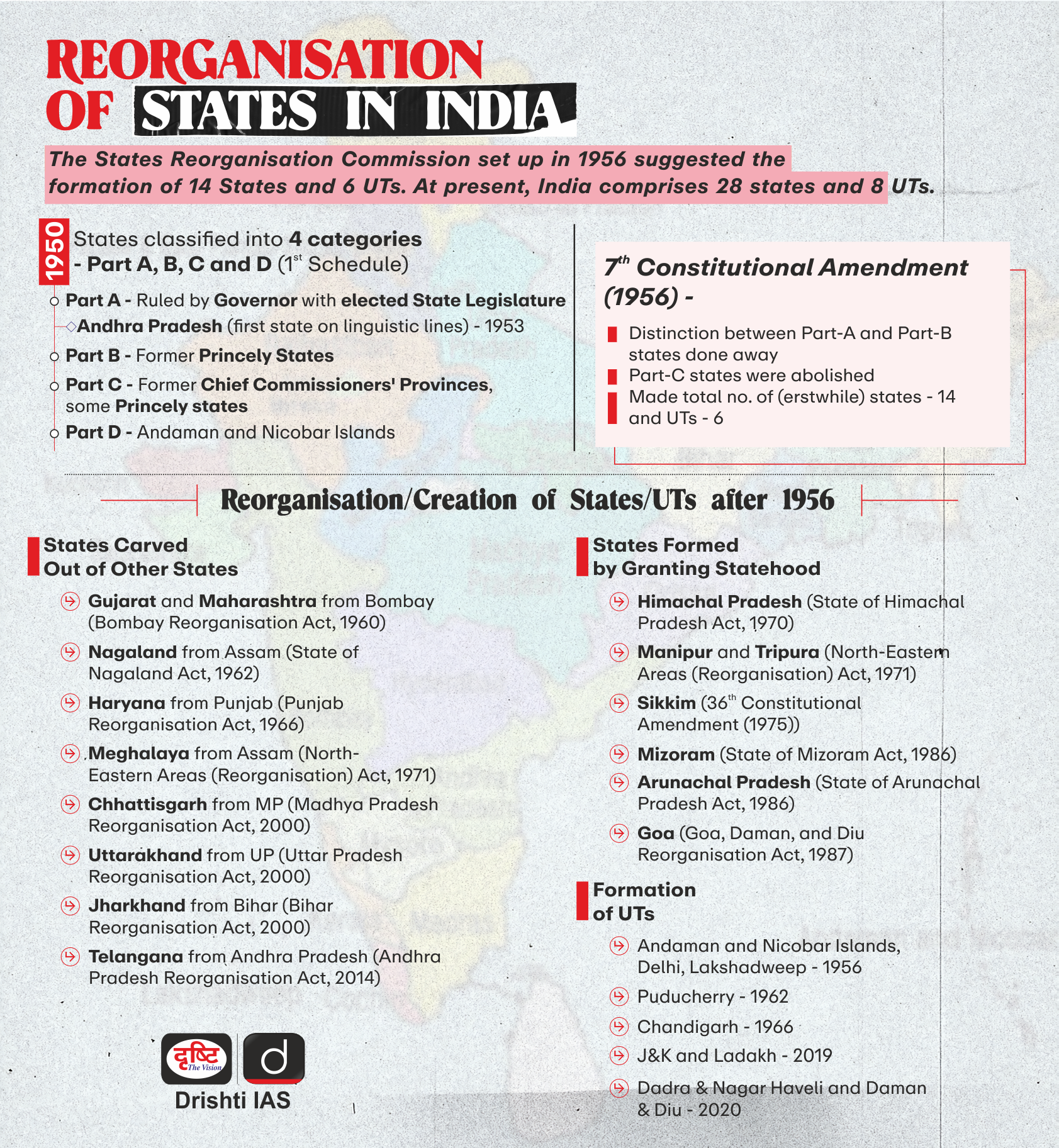Important Facts For Prelims
States Formation Day
- 05 Nov 2024
- 3 min read
Why in News?
Recently, the Prime Minister extended his best wishes to the states of Chhattisgarh, Madhya Pradesh, Haryana, Karnataka, and Kerala on their foundation day (1st November).
- He highlighted the contributions of each state to the country in various fields including cultural heritage, development, preservation, and natural resources.
| Name of State | Year of Formation | Carved Out of States | Regions Merged to form the State |
| Madhya Pradesh | 1956 | – | Parts of former Madhya Bharat, Vindhya Pradesh, Bhopal State, Central Provinces and Berar, United Provinces, and Bombay State |
| Karnataka | 1956 | – | Kannada-speaking regions of Southern India (Formerly known as Mysuru) |
| Kerala | 1956 | – | Travancore-Cochin united with Malabar and Kasaragod taluk of South Canara |
| Haryana | 1966 | Punjab | – |
| Chhattisgarh | 2000 | Madhya Pradesh (with 16 Chhattisgarhi- speaking districts) |
– |
What are the Constitutional Provisions Related to Formation of State?
- Article 2: It empowers the Parliament to ‘admit into the Union of India, or establish, new states on such terms and conditions as it thinks fit’.
- Article 3: It relates to the changes in the existing states of the Union of India. It deals with the internal re-adjustment between the territories of the constituent states. It authorizes the Parliament to -
- form a new state by separation of territory from any state or by uniting two or more states; E.g., Formation of Telangana from A.P. and Jharkhand from Bihar).
- Increase, diminish, alter the area of any state and boundaries or name of any state. E.g., Alteration of area and name of U.P., M.P. and Karnataka.
- However, there are two conditions in this regard:
- A bill, for this, can be introduced in the Parliament only with the prior recommendation of the President;
- The President has to refer the same to the state legislature for expressing its views within a specified period (though the President or Parliament is not bound by the views of the state legislature).
- In the case of a union territory, no reference need be made.
UPSC Civil Services Examination, Previous Year Question (PYQ)
Q. Which was the Capital of Andhra State when it was made a separate State in the year 1953? (2008)
(a) Guntur
(b) Kurnool
(c) Nellore
(d) Warangal
Ans: (b)







